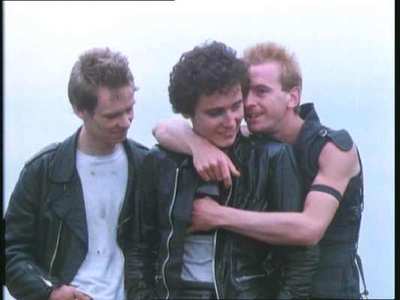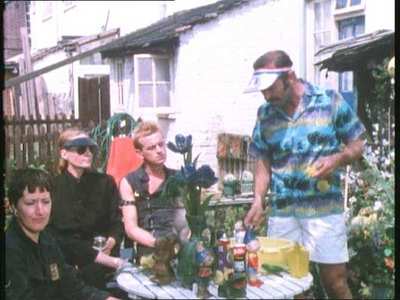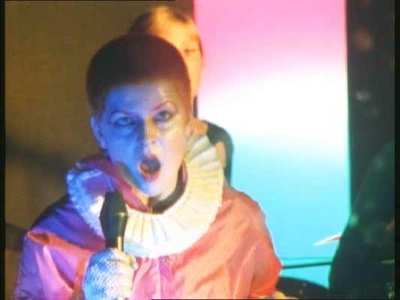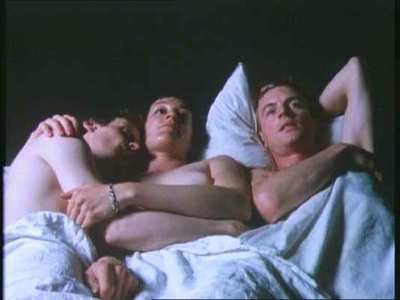Review of Jubilee
Introduction
Derek Jarman was many things during his life – painter, writer, film and music video director, actor, gardener, gay rights activist among others – and uninteresting certainly wasn’t one of them. In interview, he was fascinating, and his films were always challenging. However, that didn’t make them likeable.
Jubilee is a case in point. On its release in 1977 when Punk was in full swing, it painted a dark, brutal, anarchic vision of Britain. It was difficult viewing and was generally reviled by the establishment critics. Of course, all this did was endear it to punk culture.
24 years later it gets a release on DVD and time hasn’t mellowed it any.

Video
A straightforward 4:3 presentation, Jubilee doesn’t appear to have received much in the way of remastering from Second Sight. The image is blighted by very noticeable sparkling artefacts.
Visually, the film is daring and inventive in a self-consciously arty way. This was Jarman’s second feature and it is obvious that he is still learning his craft. Still, there is something to admire here.

Audio
Although flagged as Stereo on the packaging, this has really a mono soundtrack. And appalling it is too. The sound has a tinny, echoing quality and often makes the dialogue difficult to catch.
The soundtrack is by the bands of the day like Adam and the Ants, Siouxsie and the Banshees, etc. It is as uncompromising as the visuals. Difficult to listen to but if you like punk ...

Features
The sole extra feature is a BBC interview with Jarman filmed in 1993, less than a year before he died. For me this was the best part of the disk. Jarman was a warm and witty interviewee and the 40 minutes spent in his company just flies. He talks at length about his formative years, his life, his art, his passions.
Well worth watching.

Conclusion
Jubilee is a very difficult film to watch. It presents an uncompromising vision of a future Britain where anarchy (in the UK!) rules. It is a future where there are no morals, no law and no hope.
This future is presented to Queen Elizabeth I by the angel Ariel. Yes, you read that right. One of the more unusual facets of Jubilee is the fact that while it tries to create a anarchic, nihilistic vision, it presents this in a very theatrical and often mannered fashion. It often doesn’t work. The actors (Toyah Wilcox in particular) seem to be fiercely overacting. The sets, while trying to present Britain in decay, are often rigidly composed.
The film tries to confound gender roles by making the dominant characters female (Ms Wilcox being a case in point). This is reinforced by a particularly nasty murder of young man. His sin? Coming to soon (a “hit and run merchant” as Toyah calls him). This is nasty, brutal and almost impossible to watch.
And that goes for much of the rest of the film as well. Many of the points being made are as relevant today as 25 years ago but there will be few people who will sit through it.
Your Opinions and Comments
Be the first to post a comment!